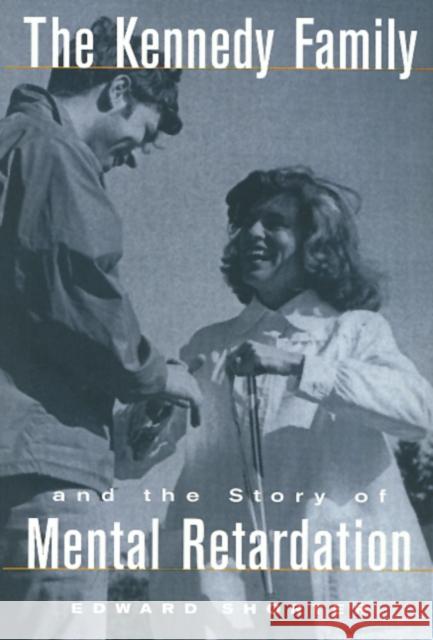The Kennedy Family » książka
The Kennedy Family
ISBN-13: 9781566397834 / Angielski / Miękka / 2000 / 249 str.
According to Edward Shorter, just forty years ago the institutions housing people with mental retardation (MR) had become a national scandal. The mentally retarded who lived at home were largely isolated and a source of family shame. Although some social stigma still attaches to the people with developmental disabilities (a range of conditions including what until recently was called mental retardation), they now actively participate in our society and are entitled by law to educational, social, and medical services. The immense improvement in their daily lives and life chances came about in no small part because affected families mobilized for change but also because the Kennedy family made mental retardation its single great cause.
Long a generous benefactor of MR-related organizations, Joseph P. Kennedy made MR the special charitable interest of the family foundation he set up in the 1950s. Although he gave all of his children official roles, he involved his daughter Eunice in performing its actual work -- identifying appropriate recipients of awards and organizing the foundation's activities. With unique access to family and foundation papers, Shorter brings to light the Kennedy family's strong commitment to public service, showing that Rose and Joe taught their children by precept and example that their wealth and status obligated them to perform good works. Their parents expected each of them to apply their considerable energies to making a difference.
Eunice Kennedy Shriver took up that charge and focused her organizational and rhetorical talents on putting MR on the federal policy agenda. As a sister of the President of the United States, she had access to the most powerfulpeople in the country and drew their attention to the desperate situation of families affected by mental retardation. Her efforts made an enormous difference, resulting in unprecedented public attention to MR and new approaches to coordinating medical and social services. Along with her husband, R. Sargent Shriver, she made the Special Olympics a international, annual event in order to encourage people with mental retardation to develop their skills and discover the joy of achievement. She emerges from these pages as a remarkable and dedicated advocate for people with developmental disabilities.
Shorter's account of mental retardation presents an unfamiliar view of the Kennedy family and adds a significant chapter to the history of disability in this country.











